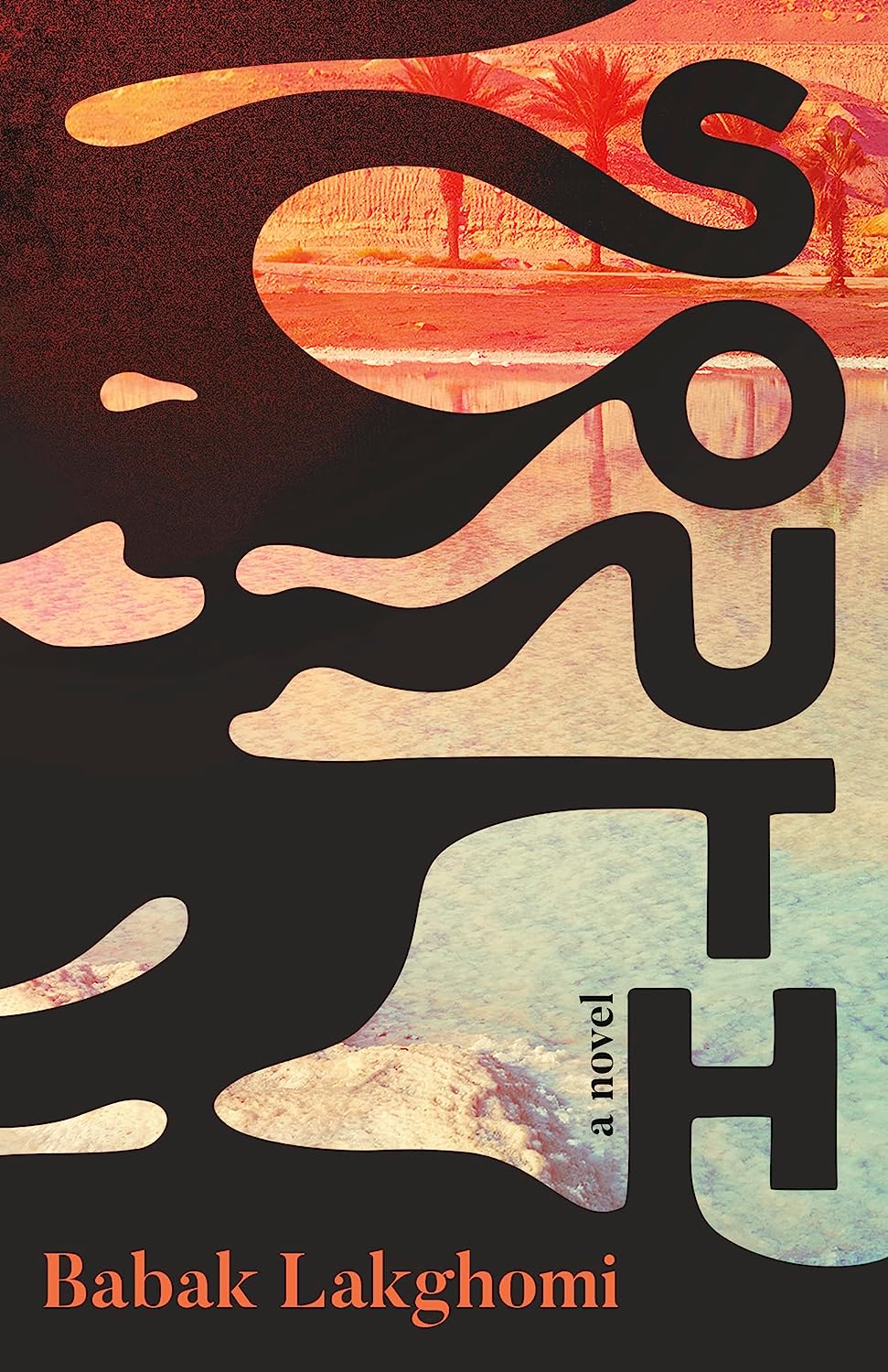Master of the Minimal
Reviews
By Nathan Dragon
Truth and history. There’s the adage that says winners write the history books. It’s obvious that this follows: the winner controls or tries to control what is known. Fabrication, distortion, and lacunae are at the same time tools of control and outcomes of the power the winners yield. Sometimes one will try to see through the mirage or be able to see down into the dark troughs between the waves’ crests. Is seeing possible? Truth is powerful. Power wants to be truth. In subjecting us, perhaps power is a kind of truth. True experiences of violence, repression, oppression.
The last few sentences might be full of clichés, but what’s not a cliché is the way that Babak Lakghomi writes about power. In a letter included with the galleys of his second book, South, Lakghomi writes, “I was thinking about truth, its relationship to history, and the possibility of accessing what is real in the presence of censorship and rival narratives. During the same period, I observed the political events under a totalitarian government in my home country of Iran, and I was taken by the parallels between what was going on there and in the United States.”
South is a politico-journo-noir about power, corruption, control, censorship and how these forces shape a person’s reality. Our protagonist is B, a freelance journalist and author. (All the novel’s characters all go by initials or titles.) B has been asked by The Editor of a large—perhaps state-connected, perhaps not—newspaper to investigate events that have transpired on The Company’s oil rigs on an inland sea in some unnamed southern desert, a region that is framed as strange, vague, and almost haunted. B finds the request odd: he’s not a staff writer, and the assignment feels too important to be given to him. But he takes it. He wants to go, to do a good job, to uncover the truth.
B is also writing a book about his father, an activist, and the trip to investigate the oil rig might help him learn something about his father’s disappearance. The journalist Charles Bowden—obsessed with the corruption of the U.S. government and the violence on the southern border—writes in Blues for Cannibals: Notes from Underground:
I’ll tell you what happened but I can’t draw you a map. It wasn’t that kind of learning. Dante invented a topography of the inferno and there really is an inferno, but Dante knew in his bones his geography was simply a way to give form to a seething plasma. So we go to the inferno, we speak of cauldrons, imagine witches chanting, and yet we know these things do not exist, that they are efforts to make hard-edged shapes out of slippery matters.
Most of B’s trip is coordinated—controlled might be a better word—by the powers that be. The powers that be—just like The Editor and The Company—suggest a singular, looming authority. It may be hydra-like, multiheaded, but The Editor and The Company are both part of a shadowy, claustrophobic world where there are simply no definitive answers. And this is exactly what Bowden figured out: we live in a world that is nearly impossible to know, and there’s always the possibility one doesn’t want to know.
With South, Lakghomi proves himself to be a master of the minimal. South—like his previous book, the novella Floating Notes—uses sparseness to elevate and intensify suspense. It manages the mysterious and paranoid in such a way that what results is a literary page-turner, even when you want to linger and savor the language. Often, when genre fiction is called “literary,” some see that label as code for being pretentious: a way of making a noir novel hard to read. South isn’t pretentious. Rather, it’s a book that’s beautifully and terrifyingly conceived. The prose is preoccupied, incongruent, suspicious, poetic. Gaps and glimpses create a strobing effect. Images repeat, glitching like a scratched-up CD (remember those?). The overall mood and atmosphere is nightmarish, an endless looping of the same doomed terrain ruled by vague inescapable powers.
Another literary touchstone is Roberto Bolaño’s Antwerp. Bolaño’s novel is experimental noir par excellence, and, as in Antwerp, the narrative in South is obscured. Bolaño wrote about corruption in the places he lived: Mexico, South America, Europe. So does Lakghomi, but he adds a doubling effect by writing about what he’s witnessed in the U.S. and Iran from where he lives and works in Canada. Nevertheless, the central events in both novels are perforated by darkness, sleep, violence, trauma, and the bizarre. Both are noirs of sense-making and sense-unmaking.
In South, the reader must make sense of what is happening by bridging the lacunae of B’s dissociation. The subject here then is ultimately epistemological—a question of what is known and how knowledge is obtained and reified, when what is known is mediated and can be controlled by the powers that be. Remembering a moment from his past, B says “I wanted to be present, but I wasn’t.” Faced with trauma, repression, the abuse of power, the violence of nations, one person can grasp only so much.
Nathan Dragon’s work can be read in NOON Annual, The Baffler, New York Tyrant, and more. Nathan edits and co-runs a small publication project called Blue Arrangements.
More Reviews



